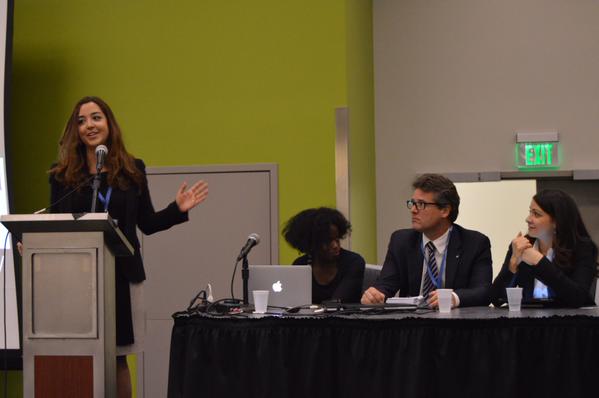
Marga Gual Soler speaking with panel. Photo: Thomas Seager
Dr. Marga Gual Soler, Assistant Research Professor at CSPO/School of Sustainable Engineering and the Built Environment at ASU and Dr. Mandë Holford, Professor of Chemical Biology at Hunter College/American Museum of Natural History, chaired the session “Becoming a Global Scientist: Science Diplomacy Skills for Early Career Researchers”, held on February 14 at the AAAS Annual Meeting in San Jose, California.
International collaboration is key to tackling the 21st century challenges in energy, health, security and the environment. However, the combination of multiple nations, cultures, development histories and political differences adds to the complexity of international dialogues. The scientific community, often working beyond national boundaries, is uniquely positioned to contribute to sustainable development goals and address common problems. The question guiding the workshop was:
How can early career scientists and engineers broaden their skills to effectively engage in global issues?
Invited panelists Dr. Frances Colón, Acting Science and Technology Adviser to the Secretary of State and Mr. Ernesto Fernández Polcuch, Senior Science Policy Specialist at the UNESCO Science Office for Latin America and the Caribbean, opened the session with insights into US and global science diplomacy motivations and mechanisms. Participants had the opportunity to work on a real science diplomacy case study analyzing the challenges and opportunities in science cooperation arising from the normalization of diplomatic relations between the United States and Cuba. The session concluded with a discussion on the skills needed to become a “science diplomat” and a brief presentation of the resources and professional development opportunities for early career scientists and engineers to engage in global science, technology research and policy scenarios. The session highlighted the upcoming Science Diplomacy and Global STEM Leadership course to be presented by the Consortium for Science, Policy and Outcomes in June 2015.
View a storify of twitter conversation during the session.